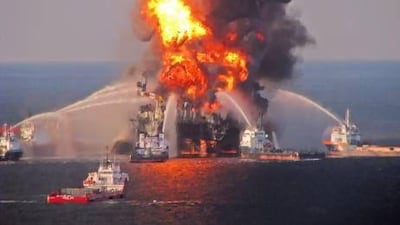Corporate governance is understood to be the relationship between the corporation and stakeholders that determines and controls the strategic direction and performance of the corporation. It is, in other words, the system by which corporations are directed and controlled.
Much has been written and discussed about the importance of good corporate governance at the helm of an organisation. However, the reality is that corporate governance challenges are far wider and more complex in most corporations with vast subsidiary networks. It is no longer sufficient to view corporate governance as simply the way in which the board at headquarters operates. Subsidiaries are a common feature of modern-day business structures, as corporations operate across multiple jurisdictions and business areas, and as recent scandals clearly demonstrate, if subsidiary governance in these entities is not adequately addressed, it can have a disproportionate impact on the group as a whole.
The 2010 BP oil spill in the Gulf of Mexico is a prime example. The rig in question was operated by BP Exploration and Production, which was a subsidiary of BP America Production, which in turn was a subsidiary of BP Company North America, which in turn was a subsidiary of BP Corporation North America, which was a subsidiary of BP America, which was a subsidiary of the parent company BP. In other words, an incident which halved the parent company's share price in a couple of weeks occurred several layers below the parent company.
Subsidiary governance is emerging as one the key topics in the theory and practice of corporate governance, yet very few best practice principles have been developed in this important realm. The challenge, in essence, relates to how corporate governance principles can be cascaded, consistently and effectively, down to the level of subsidiaries. The issue is partly about how parent companies should control their subsidiaries, but such an approach may run the risk of stifling innovation at these companies. The key issues in subsidiary governance relate to alignment, efficiencies, information flow, compliance and risk management, as well as many others.
Traditionally, approaches by parent companies to subsidiary governance have been ad hoc rather than strategic. Developing a comprehensive group-wide corporate governance strategy is difficult as subsidiaries are very heterogeneous. Firstly, subsidiaries are established for a variety of reasons. Sometimes the reasons are legal: for example, companies with fixed assets (over which they want full control) in foreign jurisdictions are required to follow the national company law. Other times subsidiaries are set up for tax reasons, risk management reasons, fiscal reasons, brand name, licence-to-operate reasons, group operational reasons, and so on.
Subsidiaries also fall within several categories in terms of the activities they conduct. These range from sales offices and distribution centres to companies with regional or local strategic mandates. Clearly the appropriate governance framework needs to be one that reflects the nature of the subsidiaries.
Subsidiary governance needs a multi-lens approach. This is because of the duality of commercial practices and legal frameworks. Subsidiaries are often set up for commercial reasons, to fulfil a commercial need. However, from a traditional legal perspective, each subsidiary is a separate legal entity with its own board of directors (or equivalent), who are responsible to act in the best interests of that company as opposed to the interests of third parties or the group as a whole.
Consequently, assuming the principles of corporate governance are applied, there is no prima facie reason why the hundreds of subsidiary companies in a corporate group should act in a coordinated manner at all.
The business reality is very different in that subsidiary boards tend to follow the instructions from the parent, which raises questions as to who is ultimately responsible if things go wrong at the subsidiary. In such situations, managers at the parent company may find themselves to be legally liable as "shadow directors" of the subsidiary.
Clearly the current understanding of good corporate governance practice needs to be further extended in order to incorporate features of modern companies, especially subsidiaries. What is required is systematic work to identify key challenges and identify good practices. It is for these reasons that Hawkamah has set up a task force on subsidiary governance to tackle this complex, yet crucial, topic. Hawkamah will be working with a number of global and regional companies, exploring their frameworks and developing case studies. The ultimate goal is to formulate a set of recommendations on subsidiary governance to support the growth and sustainability of regional companies.
The next Hawkamah Corporate Governance Forum on September 17 will be exploring subsidiary governance from the chief executive's perspective with a focus on how to best manage the relationship with the subsidiary
This article has been co-authored by Leonardo Peklar, the chief executive of Hawkamah, the Institute for Corporate Governance, and manager Alec Aaltonen

